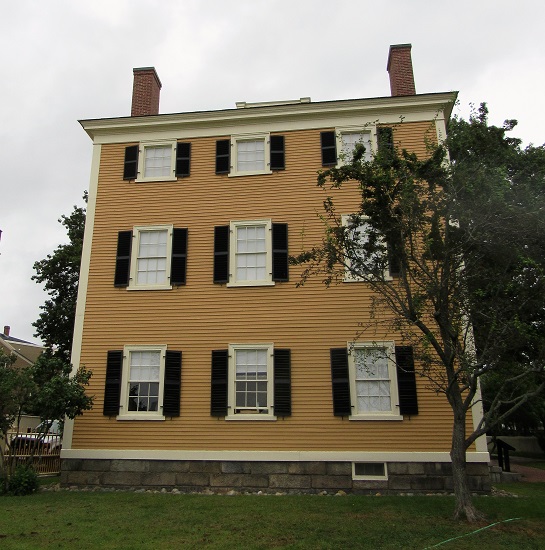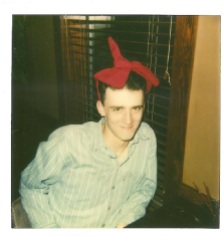Day 57, Monday, September 10, 2018
Salem Maritime National Historic Site, Salem, Massachusetts
I was excited to spend the day in Salem, Massachusetts. It is home to historical sites extending back about 350 years!
Salem Maritime National Historic Site was the park system’s first National Historic Site; it was designated on March 17, 1938. It preserves and interprets multiple eras in history, including the Triangle Trade (the trade in cotton, rum, slaves and sugar) between England, the colonies, and Africa, privateers during the American Revolution, and global trade after Independence. There are several homes and commercial buildings surviving from these periods, and some are open to the public!

The Narbonne House was built in 1675, and is an example of the Saltbox architectural style. Saltboxes are defined by the existence of a lean-to built onto the back of the building. I toured the Narbonne House, and it was interesting to see, as it has not been modernized. It was built by butcher Thomas Ives, and from 1750-1780, the Narbonne House was owned by Captain Joseph Hodges, and then in 1780 it was purchased by Jonathan Andrew, a tanner. Descendants of Andrew owned and lived in it until 1964, when it was donated to the park service. I enjoyed the guided tour of the first floor.
The Custom House was built in 1819; it was the 13th Custom House in Salem. It was here that taxes were collected on imported cargoes. You can see the inside on our own. Check out that gold eagle on top of the building!


The Derby House is the oldest surviving brick home in Salem. It was built in 1762 by Richard Derby, Sr. for his second son Elias Hasket Derby, a wedding gift. Hasket became a successful merchant and privateer during the American Revolution, which allowed him to buy a mansion in town and sell this home in 1796.

The Hawkes House was also begun by Elias Hasket Derby; construction began on the 5,000 foot home in 1780. It was originally going to be the home that he moved his growing family into, but when the exterior was nearly finished he decided to move to an existing mansion. It must be nice to have that kind of money! It stood unfinished and vacant for 20 years before it was purchased by Benjamin Hawkes and his business partner. His business partner had his half of the home removed and moved, so the remaining home is the 3,200 square foot Hawkes House.

The West India Goods Store was built in 1804, and probably initially was used as a warehouse. It operated as various stores throughout the 19th century.

The Derby Wharf is the longest wharf in Salem, at 1/2 mile long. It was originally built in 1762 and then lengthened in 1806. When it was in use, warehouses lined the sides of the wharf, but they are all gone now. The Derby Wharf Light is still at the end of the wharf though; it was built in 1871. It is a square tower that extends 25 feet above the mean high water line. It originally had a sixth-order Fresnel lens, the smallest order, and was one of only 17 sixth-order lenses in lighthouses around the world. The light still operates today when a red flashing automated beacon.
I had lunch at the Brodie’s Seaport restaurant. I had a Sam Adams Oktoberfest beer (it seemed fitting for Salem, Massachusetts) and fish and chips.

I also had a chance to wander one of Salem’s original cemeteries, and see the memorial garden that honors the victims of the Salem Witch Trials in 1692. I find it interesting to ponder the circumstances that led Salem’s residents to ostracize and persecute their neighbors. In writing this, I see similarities between what happened there and the climate in the United States today. Those who do not understand history are doomed to repeat it. We best be careful to not continue down this path.
I would love to return to Salem and see more of its history, and visit more of the Salem Witch Trial sites. There is never enough time on a trip!

I ended my visit with a trip to the National Historic Site’s Visitor Center to get my passport stamp and see the exhibits. It was interesting to connect the sites that I saw with a bit more of the context!
I also visited the House of Seven Gables; the home that inspired Nathaniel Hawthorne’s book of the same name. I’ll post about that next!
































































